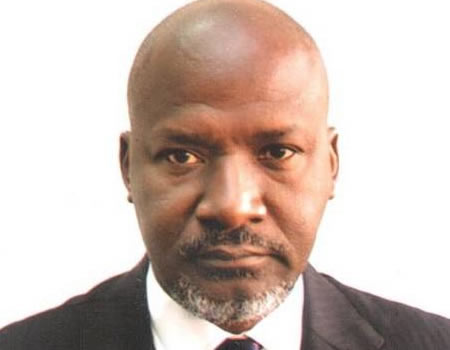The judge arrived at the date after entertaining arguments from lawyers in the bribery charge made against Belgore and former Minister of National Planning, Professor Abubakar Suleiman.
It would be recalled that the anti-graft agency had dragged Belgore before the judge over the allegation that he collected a sum of N450m from the former Minister of Petroleum Resources, Diezani Alison-Madueke and further distributed same to its beneficiaries in Kwara State.
The Commission had also pointed accusing fingers at Belgore who contested in the 2015 governorship election under the platform of the Peoples Democratic Party (PDP) in Kwara state for allegedly handling the said sum in cash without going through any financial institution.
The EFCC insisted that the offence contravenes the provision of sections 1(a), 16(d), 15(2)(d) and18(a) of the Money Laundering (Prohibition) (Amendment) Act, 2012.
In moving the application seeking to quash the charge on the reason that the anti-graft agency had failed to effect an attachment of an affidavit which shows that it had concluded investigation in the case before bringing same before the judge, Belgore’s counsel, Ebun Shofunde (SAN) insisted that the failure of the EFCC to attach an affidavit to indicate that investigations had been concluded remains a fundamental breach of the Federal High Court Practice Direction and that same had rendered the charge most incompetent.
Shofunde prayed the court to quash the charge and set Belgore free.
However in his opposition to the application, the Commission through its lawyer, Rotimi Oyedepo posited that the current law governing criminal cases in Nigeria is the Administration of Criminal Justice Act (ACJA) 2015.
Oyedepo specifically maintained that the ACJA never listed the filing of the affidavit in question as a condition which must be accomplished before a criminal charge could be initiated in court.
Oyedepo argued that the provisions of the ACJA remains superior to the Federal High Court Practice Direction.
The EFCC lawyer also directed Justice Aikawa’s attention to the provision of Section 221 of the ACJA which restrains any judge in Nigeria from looking at any application which challenges the competence of charges in a criminal matter at the middle of trial.
Oyedepo also called the attention of Justice Aikawa to the provision of Section 396 (2) of the Act, which restrains a judge from delivering any ruling on any application in that nature until judgment is handed down on the matter.






